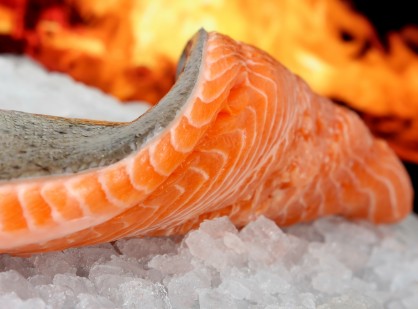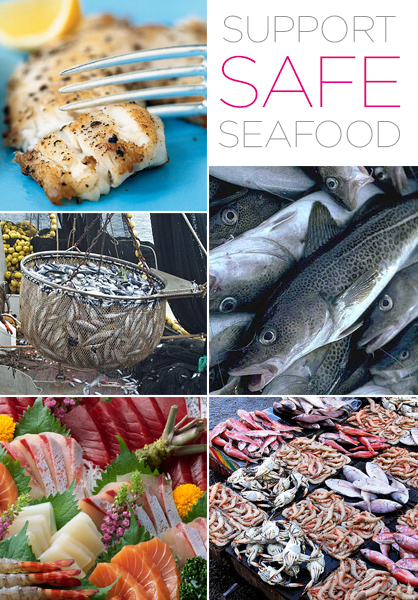Join Oceana in the fight against seafood fraud
Many people look forward to a nice sushi roll, grilled salmon or shrimp cocktail as a treat and part of a healthy diet. Yet, Oceana, the largest international nonprofit focusing solely on ocean conservation, is shedding light on the dangers and prevalence of seafood fraud and the ways it affects everyone. With a recent report highlighting the threats to consumers, setbacks to conservation efforts and damages to responsible fisherman, as well as a new campaign in support of the SAFE Seafood Act that will fight fraud, Oceana believes that now is the time to put a stop to this alarming trend.
Shockingly, recent reports have found that seafood is mislabeled anywhere from 25% to a whopping 70% of the time, and that fraud can be committed by the fishermen, processing company, restaurant, grocery store or other middleman anywhere along the supply chain. Fraud can consist of labeling a farmed salmon as wild, substituting a Yellowfin tuna for the more expensive Bluefin tuna, or switching for a different species altogether. Red snapper, salmon, grouper and Atlantic cod are most likely to be mislabeled, but it can happen with just about anything, including shellfish. Processed foods like pre-cooked dinners are the easiest targets for fraud, but it can also consciously or unconsciously happen in the nicest of restaurants. Seafood products often have little to no information on where they were harvested and, in a globalized economy where up to 84% of our seafood is imported from overseas, the route from water to table is increasingly complex. Unfortunately, there is currently a severe lack of oversight on this industry and besides fooling consumers into paying more for an inferior product, this crisis is generating a slew of other troubling problems.
With global consumption of seafood on the rise, the health risks associated with mislabeled products will only continue to grow. Oceana reports that mislabeled seafood can result in a higher number of potential contaminants, pathogens and allergens in the food, and that finfish often outrank all other commodity food groups as the cause of food-borne illnesses. Some of these are due to naturally occurring marine toxins such as histamines, while others are caused by bacteria from improper handling. Whatever the case, it is often impossible to limit the damage of a bad product through recalls because of the difficulty in tracing the origin of the fish once it reaches the marketplace.

Of course, among the most heartbreaking effects of seafood fraud is the massive damage to ocean life. Irresponsible fisherman trying to cash in ignore laws stipulating catch quotas and requiring them to release juvenile fish, avoid endangered species and stop their activity during spawning seasons. All of these severely disrupt international efforts to protect the species that need it most. Overfishing continues to plague the world’s oceans and Oceana reports that more than three quarters of global fish stocks are fully or overexploited. And, because consumers often cannot be sure of exactly what they are eating, it is difficult to make more sustainable choices. Oceana provides a useful guide to better seafood selections, but acknowledges that without better labeling, consumers are unable to exercise their full influence.
Seafood fans will be most frustrated to learn that, under laws existing since 2004, the FDA has the power to require seafood species to be labeled on all products from fish sticks to crab legs, but has yet to do so. Likewise, the FDA enforcement of other existing laws is laughably weak, making the U.S. an easy target for fraud. Currently, only 2% of seafood is inspected and there is no central agency in charge of the seafood industry, only a patchwork of different organizations that take on different responsibilities.
Oceana believes that we need to be able to track and verify every piece of seafood’s origins at each step of the way, and provide consumers with necessary information on what they are eating and how it was caught through proper labeling. We need to keep illegal seafood out of our market and fix the fragmented, inefficient system responsible for keeping our food safe. Luckily, a new bill, the SAFE Seafood Act, is designed to achieve these things and amp up the fight against seafood fraud. Help Oceana by signing their petition today and telling your Representative that you support SAFE seafood!
Tagged in: green, oceana, environment, ocean conservation, ocean health, environmental awareness, ocean preservation, fda, oceana foundation, consumer awareness, endangered species, safe seafood act, seafood fraud,




